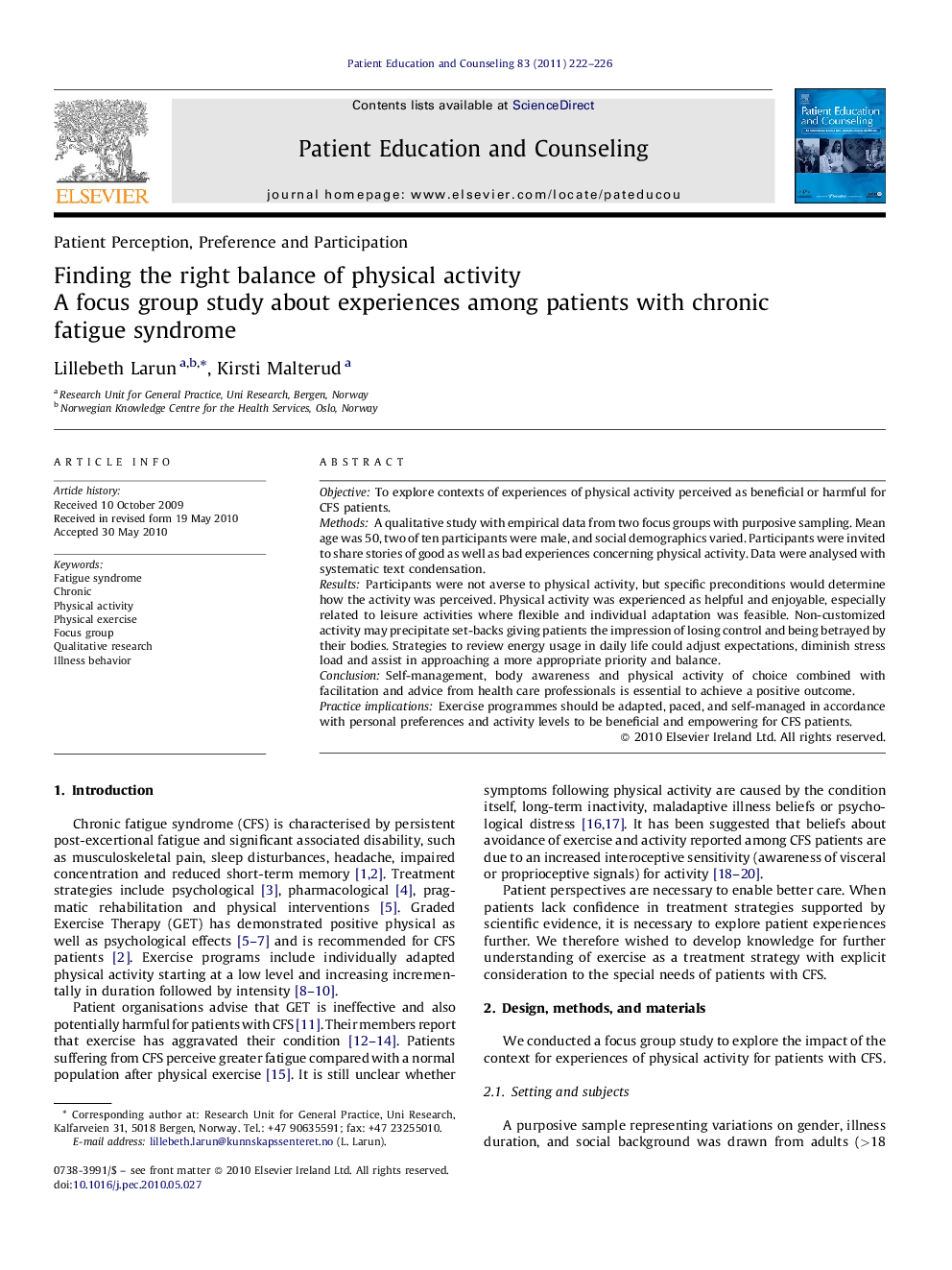| Article ID | Journal | Published Year | Pages | File Type |
|---|---|---|---|---|
| 3813772 | Patient Education and Counseling | 2011 | 5 Pages |
ObjectiveTo explore contexts of experiences of physical activity perceived as beneficial or harmful for CFS patients.MethodsA qualitative study with empirical data from two focus groups with purposive sampling. Mean age was 50, two of ten participants were male, and social demographics varied. Participants were invited to share stories of good as well as bad experiences concerning physical activity. Data were analysed with systematic text condensation.ResultsParticipants were not averse to physical activity, but specific preconditions would determine how the activity was perceived. Physical activity was experienced as helpful and enjoyable, especially related to leisure activities where flexible and individual adaptation was feasible. Non-customized activity may precipitate set-backs giving patients the impression of losing control and being betrayed by their bodies. Strategies to review energy usage in daily life could adjust expectations, diminish stress load and assist in approaching a more appropriate priority and balance.ConclusionSelf-management, body awareness and physical activity of choice combined with facilitation and advice from health care professionals is essential to achieve a positive outcome.Practice implicationsExercise programmes should be adapted, paced, and self-managed in accordance with personal preferences and activity levels to be beneficial and empowering for CFS patients.
